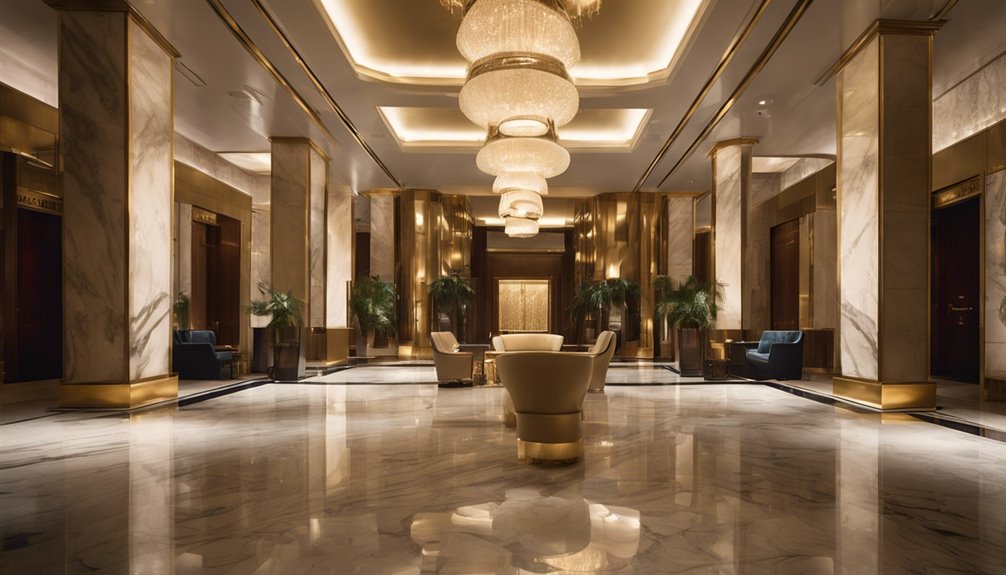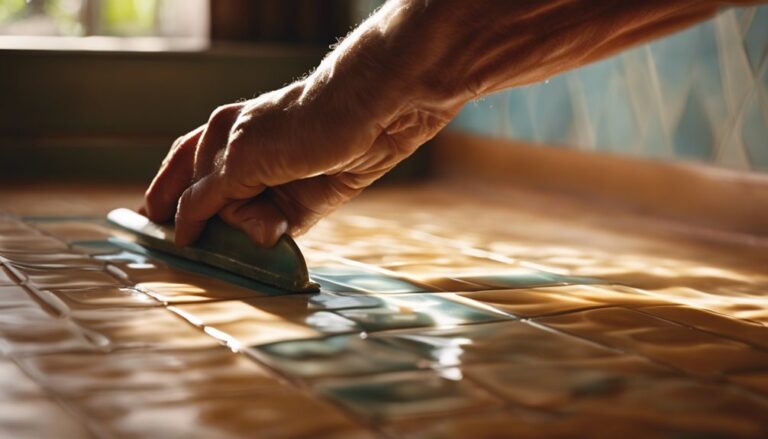Hotels often skip the 13th floor because of long-standing superstitions. Many cultures consider 13 unlucky, linking it to betrayal and misfortune, like Judas at the Last Supper. To ease guests' anxieties, hotels commonly label this floor as 12A or repurpose it entirely. Architects design buildings with these beliefs in mind, prioritizing comfort and satisfaction. By omitting the 13th floor, they create a welcoming atmosphere that aligns with cultural norms. This thoughtful approach reflects an understanding of guests' psychological comfort, allowing for a more pleasant stay. You might be intrigued to discover the unique solutions hotels have crafted around this superstition.
Historical Context of Number 13
Although you might not think much about it, the number 13 has long been steeped in superstition and cultural significance. Its numerical significance dates back to ancient civilizations, where it was often associated with both creation and destruction. In some cultures, 12 represented completeness—think of the months in a year or the zodiac signs—making 13 feel like a disruption. Historically, the roots of this fear can be traced to the Last Supper, where Judas Iscariot was the 13th guest, leading to a lingering association with betrayal. This historical context explains why many buildings skip the 13th floor, reflecting an age-old desire to avoid misfortune. Embracing these roots can give you a deeper understanding of our collective psyche and cultural practices.
Cultural Beliefs and Superstitions
While many might dismiss the number 13 as merely an unlucky digit, cultural beliefs and superstitions surrounding it run deep across various societies. You might not realize how this seemingly simple number carries significant weight. Its cultural significance often leads to avoidance in architecture, like in hotels.
Consider these superstitious beliefs:
- In Western cultures, 13 is linked to bad luck.
- In some Asian cultures, the number 4 is similarly avoided, but 13 holds no particular fear.
- Friday the 13th is famously regarded as an unlucky day.
- Many buildings skip the 13th floor, opting for 12A instead.
These pervasive beliefs showcase how deeply ingrained cultural perceptions can shape our environments, influencing decisions in ways you might not expect.
Impact on Hotel Architecture
As you step into a hotel, you may not realize that your experience has been subtly influenced by deep-seated superstitions. The absence of a 13th floor is a significant element in architectural design and floor layout. Architects often skip the 13th floor entirely, labeling it as 14 instead, to cater to the fears of potential guests. This decision affects the building's overall height and structure, leading to creative solutions in design. Elevators may divert from a traditional sequence, and floor plans are meticulously crafted to maintain the illusion of continuity. Ultimately, these choices reflect a keen awareness of how deeply rooted beliefs can shape the physical space you find yourself in, enhancing your comfort and sense of freedom during your stay.
Psychological Effects on Guests
The decision to omit a 13th floor from hotels doesn't just reshape the building's architecture; it also leaves a lasting impression on guests. This choice plays a significant role in shaping guest perceptions and enhancing psychological comfort. When you step into a hotel that skips the 13th floor, you might feel a subtle sense of ease and relief, as if the hotel is mindful of superstitions that can affect your mood.
- It reduces anxiety linked to the number 13.
- It creates an inviting atmosphere.
- It enhances overall guest satisfaction.
- It aligns with cultural beliefs and practices.
Ultimately, this thoughtful design choice aims to foster a welcoming environment, ensuring your stay is as enjoyable and comfortable as possible.
Alternatives to the 13th Floor
When it comes to avoiding the number 13, hotels get creative with their floor plans. Instead of labeling the 13th floor directly, many establishments opt for renaming it as the 14th or even using it for alternative purposes like storage or amenities. This clever approach not only keeps guests comfortable but also maintains the building's layout without the superstition tied to the number.
Designated Floor Renaming
Why do so many hotels choose to skip the 13th floor altogether? It's largely due to superstitions surrounding the number 13. Instead of leaving it out, many hotels adopt creative design strategies for floor numbering. They often rename the 13th floor to enhance guest comfort and avoid negative connotations. Here are some popular alternatives:
- 12A or 12B
- M (for mezzanine)
- Sky or Rooftop
- Executive Level
These renaming tactics allow hotels to maintain a seamless numbering system while keeping guests feeling at ease. By implementing these strategies, hotels can provide an inviting atmosphere, ensuring everyone enjoys their stay without the weight of superstition hanging overhead.
Alternative Floor Utilization
While many hotels choose to bypass the 13th floor entirely, they often take the opportunity to creatively utilize that space for alternative purposes. Some transform it into a stunning lounge or a wellness center, where guests can unwind or work out. Others may repurpose it for staff offices, optimizing the floor design for efficiency. This innovative approach not only maximizes space optimization but also provides guests with unique experiences. Imagine sipping a cocktail in a chic bar, once deemed unlucky, or practicing yoga with sweeping views. By embracing these alternatives, hotels can turn a superstitious stigma into an inviting resource, enhancing your stay while breaking free from tradition. It's all about reimagining possibilities in hospitality!
Modern Perspectives on Superstition
You might be surprised to learn how cultural beliefs shape our perceptions of numbers, especially when it comes to the infamous 13. While some people cling to these superstitions, others are starting to question their relevance in today's world. As society evolves, attitudes toward these age-old beliefs are shifting, prompting a fascinating exploration of what superstition means to us now.
Cultural Significance of Numbers
Numbers often carry deep cultural significance, influencing beliefs and behaviors in ways that might seem irrational to outsiders. For instance, the number 13 is often linked to bad luck, while other numbers symbolize prosperity or protection. This numerical symbolism shapes how we interact with the world around us.
Consider these examples:
- Four: Often associated with death in some Asian cultures.
- Seven: Seen as a lucky number across various societies.
- Eight: Represents wealth and success in Chinese culture.
- Three: Symbolizes harmony and is prevalent in sacred geometry.
Understanding these meanings helps you navigate cultural landscapes, revealing how deeply rooted superstitions shape modern life. Embracing this knowledge can empower your perspectives and choices.
Changing Attitudes Toward Superstitions
As societies evolve, so do attitudes toward superstitions, shifting from rigid beliefs to a more nuanced understanding. You may notice that younger generations often approach these age-old notions with skepticism, viewing them as relics of the past rather than absolute truths. This superstition evolution reflects a broader societal change, where critical thinking and scientific reasoning take precedence over fear-based beliefs. While some still cling to traditional superstitions, many embrace a more liberated mindset, free from the constraints of irrational fears. Instead of avoiding the 13th floor, people are increasingly likely to celebrate it, recognizing that superstition doesn't define their reality. In this new era, the power of choice empowers you to hold or dismiss these beliefs as you see fit.
Frequently Asked Questions
Do All Hotels Avoid Having a 13TH Floor?
Not all hotels avoid having a 13th floor, but many do due to cultural beliefs surrounding superstition. In several cultures, the number 13 is considered unlucky, leading to architectural choices that skip this floor. You might find that some hotels embrace the number, celebrating uniqueness instead. It's fascinating how these decisions reflect society's values and fears, shaping your experience in unexpected ways as you explore different accommodations.
Are There Any Countries That Embrace the Number 13?
Yes, there are countries that embrace the number 13, often viewing it positively due to unique cultural beliefs and numerology significance. For instance, in Italy, 13 is considered lucky, symbolizing prosperity and good fortune. Similarly, in some Latin American cultures, it's associated with positive energy. By celebrating this number, these cultures challenge the common superstitions, allowing you to explore a different perspective on luck and fate that's both invigorating and liberating.
How Do Guests React to the Absence of a 13TH Floor?
When you notice the absence of a 13th floor, your mind might wander to guest perceptions shaped by cultural beliefs. Some might find it amusing or trivial, while others could feel a sense of relief, believing they're avoiding bad luck. For some, it's a conversation starter, exploring the quirks of superstition. Ultimately, it's fascinating how a simple number can influence feelings and experiences, reflecting deeper cultural narratives that shape your stay.
What Do Hotel Staff Think About the Superstition?
You might find it fascinating how hotel staff navigate the delicate dance around superstitions. Many believe that avoiding the number 13 brings good fortune, influencing guest comfort. This superstition impact shapes their everyday interactions, as they often reassure guests about their accommodations. While some staff chuckle at the notion, others respect these beliefs, knowing that creating a welcoming environment is key to a memorable stay. It's all about making you feel at ease!
Is the Avoidance of the 13TH Floor a Recent Trend?
The avoidance of the 13th floor isn't just a recent trend; it's rooted in deep cultural beliefs and historical significance. Many societies view the number 13 as unlucky, stemming from ancient superstitions. This fear, known as triskaidekaphobia, has led hotels to skip labeling the 13th floor altogether. So, when you enter a building, you might notice that the floor numbering reflects a desire to create an atmosphere of comfort and safety for all guests.




